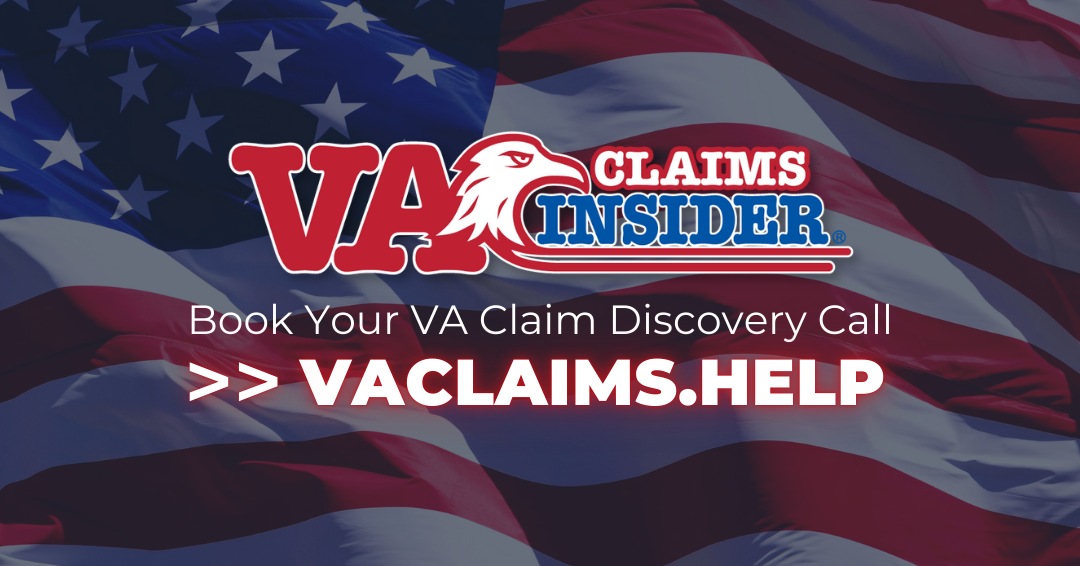Looking for Expert-Level VA Claim Answers?📱Call Us Now! 737-295-2226
Yes, you may still qualify for certain VA benefits with an Other-Than-Honorable (OTH) discharge through a Character of Discharge (COD) determination.
The VA evaluates your service record to determine if your service can be classified as “honorable for VA purposes.”
If the VA concludes that your service was not dishonorable, you may become eligible for specific benefits, such as disability compensation, pension, and home loan benefits.
Some benefits, like VA health care for mental health conditions or treatment related to military sexual trauma (MST), may be accessible even without a discharge upgrade.
While an OTH discharge can limit eligibility, it does not automatically disqualify you from receiving VA benefits.
Take the time to gather supporting evidence and explore your options through the COD process.
Table of Contents
Summary of Key Points
- Eligibility for VA Benefits with an OTH Discharge: Veterans with an Other-Than-Honorable (OTH) discharge are not automatically disqualified from receiving VA benefits. Eligibility depends on a Character of Discharge (COD) determination conducted by the VA, which evaluates whether the veteran’s service can be classified as “honorable for VA purposes.” If the COD determination finds that the service was not dishonorable, veterans may become eligible for benefits such as disability compensation, pension, and VA home loan guarantees.
- Always Accessible VA Benefits Without a Discharge Upgrade: Certain VA benefits are available to veterans with an OTH discharge without requiring a COD determination or a discharge upgrade. These include: Health care for specific conditions, such as treatment for military sexual trauma (MST). Mental health services for veterans who served at least 100 days and experienced combat. Emergency mental health crisis services, regardless of combat status.
- Understanding the Impact of an OTH Discharge: An OTH discharge is an administrative action typically issued due to misconduct or disciplinary issues, such as breaches of military order or other serious infractions. While it limits eligibility for certain benefits and creates barriers to civilian employment, it is different from punitive discharges like bad conduct or dishonorable discharges, which are the result of court-martial trials. The administrative nature of an OTH discharge means veterans may still have avenues to appeal or improve their benefit eligibility.
- Discharge Upgrades and Appeals Process: Veterans with an OTH discharge can pursue a discharge upgrade through the Discharge Review Board (DRB) if they believe their discharge was unfair or connected to issues like PTSD, TBI, MST, or outdated policies like “Don’t Ask, Don’t Tell.” Additionally, veterans can appeal a denied COD determination by providing substantial evidence, including service records, buddy statements, and other documentation. Recent regulatory changes have expanded access to benefits, making it easier for some veterans with OTH discharges to qualify for care and support.
What is an Other-Than-Honorable (OTH) Discharge from the Military?
An OTH discharge is an administrative separation from the military due to misconduct or disciplinary issues.
It indicates that a service member’s behavior or performance failed to meet their service branch’s standards.
- Causes: Disciplinary actions, breaches of military order, or serious misconduct.
- Impact: Can limit eligibility for VA benefits and create barriers to civilian employment opportunities.
- Administrative vs. Punitive: OTH discharges are administrative, whereas bad conduct and dishonorable discharges are punitive, resulting from court-martial trials.
Available VA Benefits for Veterans with OTH Discharges
While eligibility for most benefits depends on the outcome of a COD determination, some benefits are always available:
VA Health Care:
- Treatment for conditions related to military sexual trauma (MST).
- Mental health care for those who served at least 100 days and experienced combat.
- Emergency mental health crisis services.
Potential VA Benefits After COD Determination:
- Disability compensation.
- Pension benefits.
- VA home loans.
Process for Accessing VA Benefits with an OTH Discharge
- Apply for VA Benefits: Submit an application for the desired VA benefits. The VA will initiate a COD determination as part of the application process.
- Provide Supporting Documentation: Include all relevant service records, personal statements, and any evidence that may support a favorable COD determination.
- Await VA Decision: The VA will review the application and make a determination regarding eligibility based on the character of discharge.
Appealing a COD Determination
If the VA denies benefits based on the COD determination, veterans have the right to appeal the decision.
Additionally, veterans can seek a discharge upgrade through the appropriate military branch’s Discharge Review Board or Board for Correction of Military Records.
Recent Regulatory Changes
In April 2024, the VA amended its regulations regarding COD determinations, expanding access to care and benefits for some former service members discharged under OTH conditions or by special court-martial.
This final rule became effective on June 25, 2024, allowing the VA to provide services to a broader group of veterans who may have been previously ineligible.
Conclusion & Wrap-Up
While an Other Than Honorable discharge presents challenges in accessing VA benefits, recent regulatory changes have opened new pathways for eligibility.
Veterans are encouraged to apply for benefits and provide comprehensive documentation to support their claims.
For assistance, veterans can consult with VA representatives or accredited veterans service organizations to navigate the application and appeals processes effectively.
Character of Discharge Determinations and Upgrades: Frequently Asked Questions (FAQs)
What is an Other-Than-Honorable (OTH) Discharge?
An Other-Than-Honorable (OTH) discharge is an administrative separation from the military, typically issued due to misconduct or disciplinary issues.
It signifies that a service member’s behavior or performance did not meet the expected standards of their service branch.
Common causes of an OTH discharge include disciplinary actions, breaches of military order, or other serious misconduct.
This type of discharge can have significant consequences, such as limiting eligibility for VA benefits and creating challenges in securing civilian employment.
Unlike bad conduct or dishonorable discharges—which are punitive and result from court-martial trials—an OTH discharge is classified as administrative.
Can You Get VA Benefits With an Other-Than-Honorable Discharge?
Yes, it’s possible.
Veterans with an OTH discharge may still qualify for certain VA benefits, but eligibility is determined through a Character of Discharge (COD) determination by the VA.
Factors Considered:
- Extenuating circumstances explaining the OTH discharge.
- The character of military service before the negative incident(s).
- Length and performance of military service.
Supporting Evidence:
- Buddy letters, service records, and third-party testimonies can provide valuable context.
Outcome:
- If the COD determination finds your service to be “other than dishonorable,” you may qualify for specific benefits.
What Benefits Are Available With an OTH Discharge?
While most VA benefits require a successful Character of Discharge (COD) determination, some benefits are always accessible to veterans with an Other-Than-Honorable (OTH) discharge.
These include health care services for specific needs, such as treatment for conditions related to military sexual trauma (MST), mental health care for veterans who served at least 100 days and experienced combat, and emergency mental health crisis services.
Following a favorable COD determination, veterans may also become eligible for additional benefits, including disability compensation, pension benefits, and VA home loan eligibility.
How does VA determine eligibility for benefits based on the character of discharge?
The VA assesses the “character of discharge” to determine if the service meets the basic eligibility requirements under Title 38 of the United States Code.
A discharge characterized as “under honorable conditions” qualifies a veteran for VA benefits if all other eligibility criteria are met.
Discharges not under honorable conditions require a Character of Discharge (COD) determination to assess whether the service was “under conditions other than dishonorable.”
What situations create a statutory bar to VA benefits?
By law (38 U.S.C. § 5303), the following situations result in a statutory bar to VA benefits unless the veteran is found to have been insane at the time of the offense:
- Sentence of a general court-martial
- Refusal of military duty as a conscientious objector
- Desertion
- Resignation for the good of the service as an officer
- Absence Without Leave (AWOL) for 180 days or more without compelling circumstances
- Discharge as an alien during periods of hostilities
If a veteran’s discharge was for one of these reasons, the law prohibits VA benefits, except for limited exceptions like emergency health care.
Can VA benefits be denied for other reasons beyond statutory bars?
Yes. VA regulation 38 CFR § 3.12(d) identifies additional circumstances where a discharge may be considered “under dishonorable conditions,” which bars eligibility.
These include:
- Accepting an undesirable discharge to avoid trial by general court-martial
- Mutiny or spying
- Offenses involving moral turpitude (typically including felony convictions)
- Willful and persistent misconduct
- Homosexual acts involving aggravating circumstances (e.g., coercion, assault, or abuse of rank)
The VA reviews each case individually to determine if the circumstances of the discharge meet these conditions.
Can You Get VA Benefits With a Dishonorable Discharge?
No, veterans with a dishonorable discharge are generally ineligible for most VA benefits.
A dishonorable discharge is the most severe and typically follows serious offenses determined by court-martial.
However, in rare cases, Veterans may pursue a discharge upgrade or specific benefits through legal avenues.
What If I Served More Than One Enlistment Period?
If you served multiple enlistments, only the period ending with an honorable discharge qualifies you for VA benefits.
For example:
- Honorable Discharge: Benefits are granted for service during that enlistment period.
- OTH Discharge: Benefits are denied for service during this period unless successfully appealed or upgraded.
How Do I Apply for a Military Discharge Upgrade?
To apply for a discharge upgrade, answer a series of questions to get step-by-step instructions tailored to your situation.
If your application is approved, your discharge status will be upgraded, making you eligible for the VA benefits you earned during your service.
Strong Cases for a Discharge Upgrade:
- Mental health conditions, including PTSD.
- Traumatic brain injury (TBI).
- Sexual assault or harassment during service (military sexual trauma or MST).
- Sexual orientation (e.g., under the Don’t Ask, Don’t Tell policy).
Can I Get VA Benefits Without a Discharge Upgrade?
Yes, you may access some VA benefits through the Character of Discharge (COD) review process, even with a less-than-honorable discharge.
What the VA Considers:
- Whether your service was “honorable for VA purposes.”
- Supporting documents such as service records or statements.
Important Note:
- You can request a COD review while applying for a discharge upgrade from the Department of Defense (DoD) or Coast Guard.
What If I Already Applied for a Discharge Upgrade and Was Denied?
If your application was denied, you can reapply, but your new application should include additional evidence or meet updated DoD rules.
Key Updates to DoD Rules:
- Discharges related to PTSD, TBI, and mental health (2014).
- Discharges linked to MST (2017).
- Discharges related to sexual orientation (2011).
When reapplying, answer the discharge upgrade application questions accurately to get instructions tailored to your situation.
What If I Served Honorably But Didn’t Receive Discharge Paperwork?
You can still qualify for VA benefits for your honorable period of service, even without a DD214, if:
- You completed your original contract without disciplinary issues.
- You re-enlisted or extended your service but didn’t receive a separate honorable DD214 for the initial period.
Steps to Take:
- Mention your honorable service when applying for VA benefits.
- Request a second DD214 for the honorable period of service from the DoD or Coast Guard.
What If I Have a DD215 Showing an Upgraded Discharge, But My DD214 Is Incorrect?
A DD215 reflects discharge corrections, but your original DD214 may still show outdated information.
Steps to Request an Updated DD214:
- Use the discharge upgrade application process.
- Select the option for receiving a DD215 but wanting an updated DD214.
- Follow the instructions provided to complete your request.
This ensures your DD214 reflects the correct discharge status without showing the earlier characterization of discharge.
Veterans can now seek a military discharge upgrade online.
For more information or to get started on your application, visit the VA’s Discharge Upgrade Tool.
Where Can I Get Help with a Military Discharge Upgrade?
- Do It Yourself Online at VA.gov: Veterans can attempt to upgrade their military discharge status online. Use the VA’s Discharge Upgrade Tool
- Veterans Service Organizations (VSOs): Provide free guidance for discharge upgrades and VA claims. Click here to search and find a VSO near you.
- VA-Accredited Attorneys: Experts like VA-accredited attorneys offer legal support to navigate the discharge upgrade process effectively. Click here to find an accredited VA attorney near you.
Want Expert-Level Help with Your VA Disability Claim? WE GOT YOUR SIX!
How does VA Claims Insider help veterans?
We make the confusing and frustrating VA claim process EASY through our 8-step proprietary system and one-on-one coaching; we’re the VA Claim EXPERTS you can trust, and YOU are never alone in this fight against the VA!
You’ll also receive VA disability expert Brian Reese’s SEM Method Blueprint—a proven formula that has helped over 25,000 veterans win their VA disability claims faster:
Strategy + Education + Medical Evidence = VA Rating and Compensation You Deserve FASTER!
Start today and unlock an exceptional level of service you deserve for serving our country:
➡️ You’ll hear from a VA Claim Expert over email within 15 minutes of signing up today.
➡️ You’ll hear from your Veteran Coach team within 24 hours of all inquiries during normal business days/hours.
➡️ Our terms are clear and simple: If we don’t win, you don’t pay. You have nothing to lose and everything to gain.
Click the red button below to start the process of winning your VA claim right now!
Veterans: Are You Ready to WIN, SERVICE-CONNECT, and INCREASE Your VA Rating FASTER?

- VA Claims Insider is the #1 most trusted name in VA disability claims.
- Work directly with a VA claims coach who can help lead you to VA claim victory.
- 25,000+ disabled veterans served in our membership programs since 2016.
- 30% average rating increase for veterans who complete our #1 rated Elite program.
- 4.7/5.0 average rating out of 6,000+ total reviews; 5,000+ 5-star reviews.
About the Author

Brian Reese
Brian Reese is a world-renowned VA disability benefits expert and the #1 bestselling author of VA Claim Secrets and You Deserve It. Motivated by his own frustration with the VA claim process, Brian founded VA Claims Insider to help disabled veterans secure their VA disability compensation faster, regardless of their past struggles with the VA. Since 2013, he has positively impacted the lives of over 10 million military, veterans, and their families.
A former active-duty Air Force officer, Brian has extensive experience leading diverse teams in challenging international environments, including a combat tour in Afghanistan in 2011 supporting Operation ENDURING FREEDOM.
Brian is a Distinguished Graduate of Management from the United States Air Force Academy and earned his MBA from Oklahoma State University’s Spears School of Business, where he was a National Honor Scholar, ranking in the top 1% of his class.



